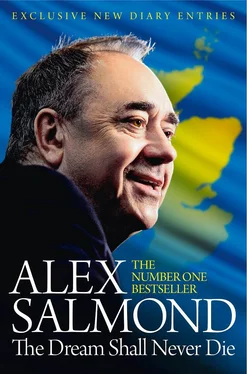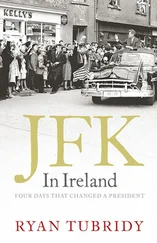But by the end of the century there had been a significant shift. The most highly regarded business people in the country were no longer those who turned silver spoons into base metal but working-class Scots who had either built their own businesses or run companies on their own merits.
Thus the likes of Brian Souter, Jim McColl, Tom Hunter, Tom Farmer, Martin Gilbert, Roy McGregor and David Murray became the best-known entrepreneurs in the land. What’s more, these people were popular and were often deeply influenced by the philosophy and philanthropy of another great Scot, Andrew Carnegie.
They were also generally sympathetic to either independence or at least home rule, and none of them rated the traditional unionist business organisations like the CBI. This directly affected Scottish politics.
In the 1979 referendum people in Scotland still listened to the CBI. By 1997 they were ignoring them. By 2014 they were laughing at them.
At the same time Scotland’s economic performance improved. The country now has lower unemployment and, even more crucially, higher employment than the UK average. Indeed outside the south-east of England, Scotland now has the best-performing economy in the country.
Furthermore the second half of the century brought a revival in the arts in Scotland, which gathered pace through the millennium. From crime novels to Turner prizes to chart-topping groups, Scottish art forms flourished as the country moved through the self-government gear box. The balance of opinion in this burgeoning artistic community also favoured radical change or independence.
Against that background the movement towards home rule was irresistible. I committed the SNP to campaign with Labour to secure a double YES vote in the referendum of September 1997. The political price that the late Donald Dewar agreed to pay for securing a united campaign was his explicit agreement that Scotland could progress to independence if the people so willed. Labour, it should be said, made that offer confident that the introduction of proportional representation for the Scottish Parliament would be an insurance policy against any such eventuality.
After a successful referendum campaign, the Scottish Parliament was, in the words from the chair of its most experienced member, Winnie Ewing, ‘hereby reconvened’ in 1999. The ‘recess’ had lasted a mere 292 years!
In the elections of that year the SNP gained more parliamentarians in a single day than in the previous seventy-year history of the party, became the official opposition, and shifted the centre of gravity of Scottish politics irreversibly from Westminster to Scotland.
After a setback in 2003, the SNP, under its new and combined leadership team of Nicola Sturgeon and me, narrowly won the election of 2007, and in the process inflicted on the Labour Party its first defeat in a major Scottish election since 1955.
There followed four years of minority government with a plurality of one seat. This government was to face the challenge of the greatest squeeze on public spending since the Second World War.
However, thanks to the parliamentary skill of the business convener Bruce Crawford and the magician-type qualities of the Finance Secretary John Swinney, the minority government survived to prosper. In 2011 the SNP achieved what had, until then, been thought impossible: an absolute majority in a proportional system specifically designed to prevent that from happening.
This made a referendum on independence, a key manifesto pledge of the SNP, inevitable. In the first term of office the three unionist parties had held the line against the referendum apart from a brief period in 2008 when Wendy Alexander, as Labour leader in the Scottish Parliament, had unexpectedly proposed a referendum herself.
Unfortunately for Wendy, among those most surprised by this development was Prime Minister Gordon Brown, and the drama thus ended with her resignation. This was ostensibly for a minor infraction of donation declarations but in reality it was because of a complete removal of her political credibility by a London leadership team, which included her own brother Douglas, who gave her no support whatsoever.
This episode was a classic example of Labour in Scotland being treated as a London ‘branch office’, in the phrase of Johann Lamont (two Labour leaders after Wendy) in her spectacular resignation eruption of October 2014.
If the election result made a referendum certain, it did not define how exactly such a referendum should be structured. That was to be the subject of delicate negotiation between Downing Street and the Scottish government.
I had previously proposed to David Cameron, after his own election in 2010, that he should spring a political surprise and implement radical devolution for Scotland, often described in the shorthand title of ‘devo max’. This initiative got short shrift from the Prime Minister.
Why this was the case I cannot be certain. It would have been popular with his Liberal allies and allowed Cameron to propose a statesmanlike solution to the West Lothian question, *and one effectively on his own terms.
The best explanation for Tory intransigence lies in the bowels of Westminster history and deep in the entrails of the Conservative interest. From Dublin to Delhi, Westminster governments have a dreadful record of conceding much too little and much too late to restless nations. In the case of Scotland the Tory attitude is further complicated by a proprietorial instinct. Regardless of their near total wipeout in Scottish democratic politics they regard our country as part of their demesne.
David Cameron stands in a long line of Tory prime ministers close to landed interests in Scotland. The Prime Minister’s holiday retreat, the Tarbert Estate on the island of Jura, is popularly believed to be owned by Mr Cameron’s stepfather-in-law, William Astor. In fact, it is owned by Ginge Manor Estates Ltd, a company registered in the Bahamas. The name tells the family story – Ginge Manor is William Astor’s stately home in Oxfordshire.
This interest extends to the very top of the civil service. Many people were perplexed by the apparent willingness of the Head of the Treasury, Sir Nicholas Macpherson, to abandon any vestige of civil service impartiality during the referendum campaign. Some people assume that he was forced into it by a scheming and highly political Chancellor. I doubt that.
Just after the election of 2011, I had a meeting with George Osborne and Sir Nicholas in the Treasury. Normally at these sorts of meetings there is an element of political sparring between the politicians while the civil servants stay suitably inscrutable. This meeting was different. Osborne was full of bonhomie while Macpherson radiated hostility.
I have no means of looking into the soul of the Permanent Secretary to the Treasury but my guess is that a background reason for his intense level of politicisation may well lie in his family’s extensive land interests in Scotland.
Whether that is his motivation or not, there is now no doubting his politicisation. In an unwise series of admissions to the inaugural meeting of the Strand Group *on 19 January 2015 Macpherson wallowed in his new-found role as a politician. He defended his decision publicly to oppose independence for Scotland. He said that in such an ‘extreme’ case as the referendum, in which ‘people are seeking to destroy the fabric of the state’ and to ‘impugn its territorial integrity’, the normal rules of civil service impartiality did not apply.
It is interesting to speculate how far Macpherson’s rant could change the relationship between civil servants and politicians if others succumb to this pernicious nonsense. In the past his logic could have led officials to take action against any politician or indeed government ‘destroying the fabric of the state’ by, say, accession to the European Union, or ‘impugning’ its financial integrity by, say, attempting to join the Euro. In the future being ‘extreme’ in Macpherson’s judgement could be, say, advocating the non-renewal of the Trident submarine fleet.
Читать дальше











